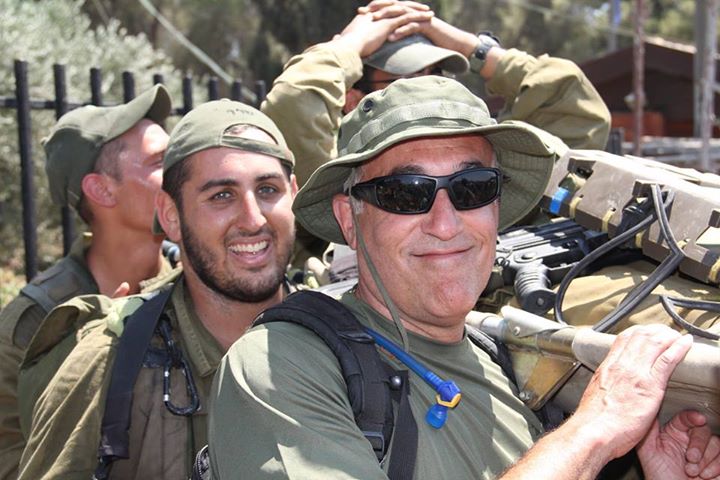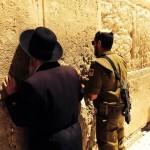Traveling far and wide from every corner of the world, Israeli “lone soldiers” risk their lives every day to protect a 10,782 square mile territory for their people; a territory less than 1/16th the size of California.
Such a decision provokes a variety of questions for these lone soldiers, or men and women who voluntarily serve in the Israel Defense Forces, despite their lack of Israeli citizenship. Why not fight for the country in which you reside? Why travel across the globe to defend a seemingly foreign land? For most, the answer is simple: “I decided that I need to be a part of Israel to make sure there is always a homeland for any persecuted Jew who could always run away and be safe in Israel — nationalistic reasons,” says UCLA alumnus Yoni Scharf.
Persecution has historically been a painful reality for the Scharf family. A grandson of two Holocaust survivors, Scharf currently battles on the front lines of war in order to ensure that “the Jewish people never need to hide again — to hide their identity from anti-Semites.”
Scharf is a part of the Golani brigade. As a lone soldier, he is given many benefits including financial assistance, help with housing, and the ability to visit home for a month every year.
Scharf enlisted in the Israel Defense Forces as a lone soldier prior to entering UCLA. After a few years in the IDF, he attended UCLA as a Jewish Studies major with a minor in Near Eastern Languages and Cultures, in addition to satisfying all pre-med requirements. Unlike most members of the graduating class of 2013, who were focused on graduate school acceptances and job offers, Scharf immediately put his future aspirations aside and moved to Israel to begin the grueling army training. He describes it as challenging, recalling a 45-mile nonstop hike through the night toward the end of his training. This strenuous trek is called the “masa,” or “journey” in Hebrew; it teaches these soldiers the importance of teamwork and ultimately reassures them of their capabilities to conquer any tribulation.
As a soldier, Scharf faces difficulties in both physical and moral realms. “Donkey suicide bombers. Snipers. Mortars. Rockets. Tunnels. Terrorists with automatic machine guns and RPGs. Suicide bombers. Unfortunately, the enemy uses civilians as shields. It is one of the strongest barriers they have for Jewish soldiers to cross,” says Scharf. Soldiers not only take on the responsibility of protecting their own people, but they also take on the responsibility of protecting their enemies’ people, who are often deliberately put in harm’s way.
“We can’t hurt innocent mothers and children for no reason. As human beings and the people of the book, we risk our lives time and time again for the safety of the enemy’s [human] shields,” said Scharf.
Luckily for him, during the recent Israel-Gaza conflict, Scharf’s brigade was stationed in the city of Sadjayia, a city with a meager population of civilians. As a result, they were able to more easily thwart rocket launches and uncover terrorist tunnels without fearing for the safety of residents.
As Americans, we cannot forget that terrorist groups such as Hamas all have the same greater goal. This war is not simply a war over land; rather, it is an attempt by Israel to protect the world from an out of control force that believes in the destruction of all peoples who are not in line with their same beliefs.
“Even though we don’t go home for weeks at a time and we sleep in the dirt, we know as combat soldiers that we are doing the right thing and our civilians need to be constantly protected. When the bullets fly and the mortars rain down, we go in because Israel is our country and we will never let it down. No matter what, we wont give up without fighting to the end,” Scharf says.


